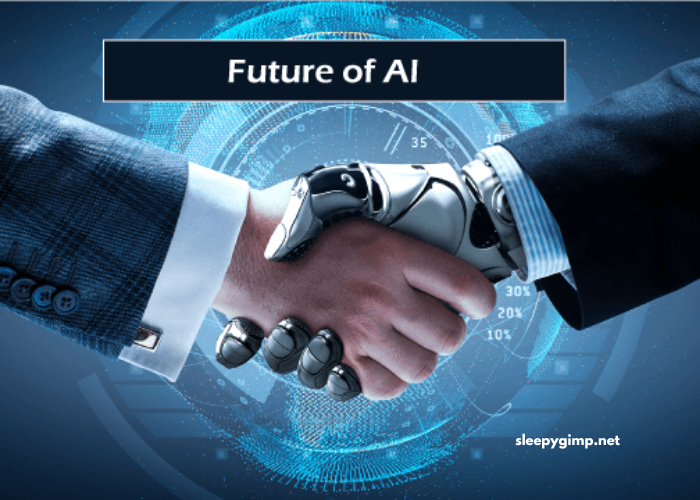In recent years, artificial intelligence (AI) has emerged as one of the most transformative technologies in human history. Its applications span across industries, from healthcare and finance to education and entertainment. However, one area where its impact is especially profound is the workforce. The future of AI promises a reshaped workforce—one where automation, intelligent systems, and human-machine collaboration redefine how work is performed, organized, and managed.
In this article, we will explore how AI is shaping the workforce, its potential implications, and the future trends that businesses, workers, and policymakers need to prepare for.
The Role of AI in the Workforce
AI has already begun to influence the workforce in various ways. While automation and robots have replaced some human jobs, AI systems are also enhancing human capabilities, enabling workers to become more efficient and productive. AI-powered systems help organizations make data-driven decisions, personalize customer experiences, and streamline business processes.
1. Automation of Repetitive Tasks
One of the primary ways AI is reshaping the workforce is through automation. Many tasks that were once manual, repetitive, and time-consuming can now be automated with AI algorithms and robotics. This includes activities like data entry, scheduling, inventory management, and customer support.
For example, AI-powered chatbots are increasingly being used in customer service, handling common inquiries and issues without the need for human intervention. In manufacturing, robotic systems can handle assembly line tasks that previously required human labor. These advancements allow employees to focus on more complex, creative, and value-driven work, which can enhance job satisfaction and productivity.
2. AI-Assisted Decision-Making
AI systems are capable of analyzing vast amounts of data to uncover patterns and trends that might not be immediately apparent to humans. This capability is being leveraged by businesses to support decision-making processes in a variety of fields.
In finance, for instance, AI algorithms can predict market trends and help analysts make more informed investment decisions. In healthcare, AI is being used to assist doctors in diagnosing diseases and recommending treatment options based on patient data. These AI-assisted decision-making tools not only improve accuracy but also reduce the time and effort required for human workers to analyze complex information.
3. Personalized Workflows
AI is also enabling the creation of personalized workflows for employees. By analyzing individual performance metrics, preferences, and work habits, AI systems can optimize the way tasks are assigned and completed. This helps improve productivity while also enhancing job satisfaction.
For example, AI tools can recommend training programs or learning resources based on an employee’s skills and career goals, thereby accelerating professional development. In sales, AI can provide personalized customer insights and sales strategies tailored to an individual’s strengths, leading to higher conversion rates.
The Impact of AI on Job Creation and Job Displacement
While there is no denying the transformative power of AI in the workforce, one of the most significant concerns is its potential to displace jobs. Automation and AI-driven technologies have the potential to replace certain roles, particularly those that involve repetitive, low-skill tasks.
1. Job Displacement in Routine Roles
Jobs that are primarily manual or routine in nature are at the highest risk of automation. For example, truck drivers, factory workers, and retail clerks may see their jobs replaced by self-driving vehicles, automated production lines, or AI-driven cashier systems. These changes could lead to significant job displacement, especially for workers without specialized skills.
2. New Job Opportunities and Skill Requirements
On the flip side, AI is also creating new jobs, particularly in fields that require advanced technical skills. As businesses adopt AI technologies, there will be a growing demand for workers with expertise in machine learning, data science, robotics, and AI programming. These high-skill roles will be essential in the development, deployment, and maintenance of AI systems.
Moreover, AI is expected to give rise to entirely new industries and job functions that do not currently exist. For instance, AI ethics specialists, who focus on the responsible deployment of AI technologies, and human-AI interaction designers, who ensure that AI systems are user-friendly and effective, may become crucial roles in the workforce of the future.
3. Reskilling and Upskilling the Workforce
As AI continues to reshape the workforce, workers will need to adapt to the changing landscape. Reskilling and upskilling initiatives will be critical to helping employees transition into new roles that leverage AI technologies. Companies and educational institutions will need to invest in training programs that equip workers with the skills needed for the future job market.
For example, a factory worker displaced by automation might receive training in programming or data analysis to take on a role in AI system monitoring or optimization. Likewise, workers in administrative roles may need to learn how to use AI tools to enhance their productivity and decision-making capabilities.
The Role of Human Workers in an AI-Driven World
While AI is powerful, it is unlikely to replace humans entirely in the workforce. Instead, AI will complement human abilities, creating a collaborative working environment where both humans and machines work together to achieve optimal outcomes.
1. Human Creativity and Problem-Solving
Despite AI’s impressive capabilities, it still lacks key human traits such as creativity, empathy, and critical thinking. AI excels at processing large datasets, recognizing patterns, and automating routine tasks, but it cannot replicate the intuitive, innovative thinking that humans bring to the table.
For example, while AI can generate reports and analyze data, it still requires human input to interpret findings, provide strategic insights, and create innovative solutions to complex problems. In creative fields like advertising, design, and marketing, human intuition and artistic vision remain essential, even as AI tools assist in automating certain aspects of the process.
2. Collaboration Between Humans and AI
In many industries, AI will serve as a valuable collaborator, augmenting the work of human employees rather than replacing them. This collaborative approach can lead to enhanced productivity, improved outcomes, and new opportunities for workers to focus on higher-level tasks.
For instance, in healthcare, AI can assist doctors by analyzing medical images and identifying potential health concerns. However, it is still up to the human doctor to make the final diagnosis, take into account the patient’s unique circumstances, and decide on the best course of treatment. Similarly, in finance, AI can help analysts process data and forecast trends, but human judgment will remain crucial for making strategic investment decisions.
The Future Trends of AI in the Workforce
As AI continues to evolve, several key trends are likely to shape the future of work. These trends will influence not only the types of jobs that are available but also how work is performed and how businesses operate.
1. The Rise of Remote Work and AI-Driven Collaboration
The COVID-19 pandemic accelerated the shift toward remote work, and AI is expected to play a key role in further enabling this transition. AI-powered collaboration tools, such as virtual assistants, meeting schedulers, and project management platforms, will continue to improve the remote work experience by making it easier for teams to collaborate and stay productive.
Additionally, AI can help optimize workflows for remote workers by providing real-time performance feedback and recommendations for improvement. This could lead to more flexible work arrangements and a greater focus on results rather than traditional office hours.
2. Ethical AI and the Importance of Human Oversight
As AI technologies become more integrated into the workforce, questions around AI ethics and accountability will become increasingly important. Issues such as bias in AI algorithms, privacy concerns, and the potential for job displacement will require careful attention from policymakers, businesses, and AI developers.
Ensuring that AI systems are fair, transparent, and aligned with human values will be a crucial part of their successful integration into the workforce. Human oversight will remain necessary to monitor AI systems and ensure that they operate within ethical guidelines.
3. AI and Workforce Diversity
AI has the potential to promote greater diversity and inclusion in the workforce. By analyzing performance metrics, AI can help identify unconscious biases in hiring and promotion practices. This can lead to more objective decision-making, reducing the influence of stereotypes and biases that may otherwise limit opportunities for underrepresented groups.
Moreover, AI tools can support diverse workforces by providing personalized learning and development opportunities. AI systems can recommend training programs and career paths tailored to an employee’s unique strengths and aspirations, helping to bridge the skills gap and promote more inclusive career advancement.
Conclusion
The future of AI in the workforce is one of transformation, innovation, and opportunity. While there are concerns about job displacement and the impact of automation on low-skill workers, AI also promises to create new roles, enhance productivity, and improve the overall quality of work.
By embracing AI technologies and investing in reskilling and upskilling initiatives, businesses and workers can better prepare for the evolving job market. The future workforce will be characterized by a collaboration between humans and machines, where AI amplifies human potential and enables employees to focus on higher-level tasks that require creativity, critical thinking, and emotional intelligence.
As we look ahead, it’s clear that AI will play a central role in shaping the workforce of tomorrow—one that is smarter, more efficient, and more inclusive than ever before.





